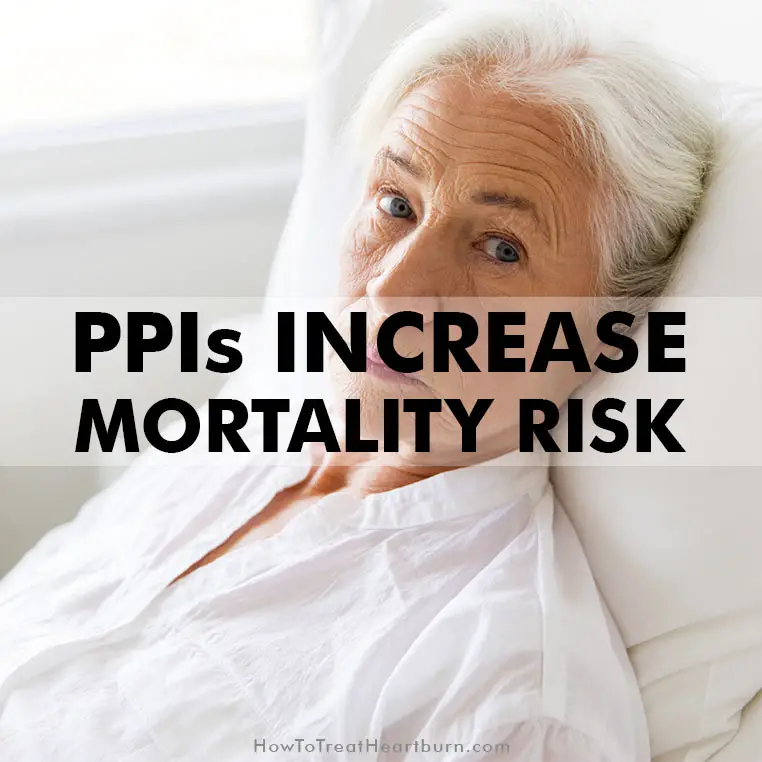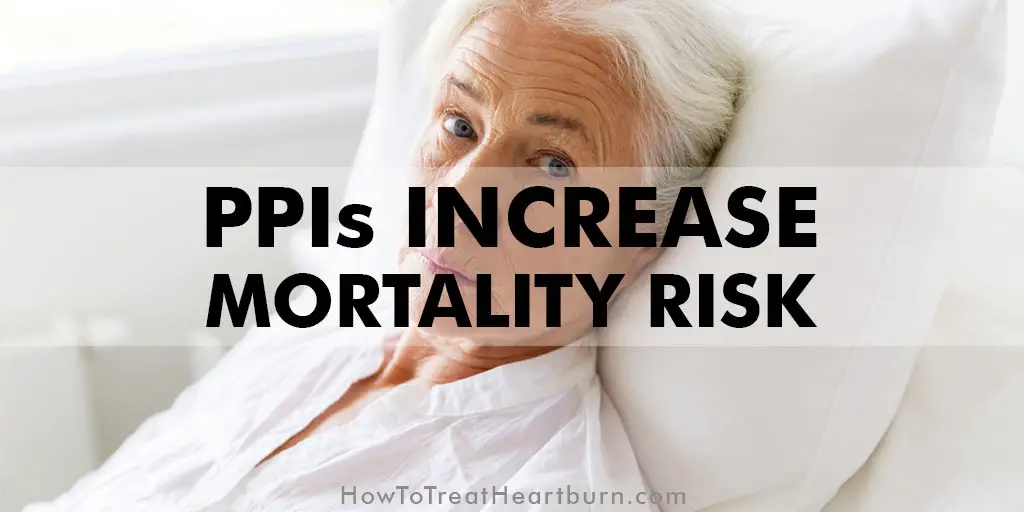Disclosure: I am compensated for purchases made through some links on this site. Click for details.
Proton pump inhibitors (PPIs) are readily available over-the-counter and by prescription. These heartburn medications are used by millions. You may know them as Prilosec (omeprazole), Nexium (esomeprazole), Prevacid (lansoprazole ) and more.
Studies have linked PPIs to chronic kidney disease, liver damage, heart disease, pneumonia, bone fractures, dementia, Alzheimer’s, Clostridium difficile infection, and now a new study using data from the US Department of Veterans Affairs shows an increased risk of death.
An increase in mortality rate with the use of PPIs only makes sense when looking at the side effects associated with PPIs. The list of life-threatening side effects caused by PPIs is growing and so does the concern of doctors, scientists, researchers, drug manufacturers, and the general public who have trustingly taken these heartburn drugs for years.
Related Content:
Findings Of PPI Mortality Risk Study
The study analyzed three groups:
- New users of PPIs or H2 blockers, another class of heartburn drug
- PPI users vs nonusers
- PPI users vs nonusers of acid suppression therapy
The study found:
- New users of PPIs have a 25% greater risk of death compared to new users of H2 blockers
- PPI users have a 15% greater risk of death vs nonusers
- PPI users have a 23% greater risk of death vs nonusers of acid suppression therapy
In addition, the mortality risk increases with the length of time patients took PPIs.1
Stop Taking PPIs?
Don’t panic and don’t stop taking PPIs without talking to your doctor. Many people need to be on PPIs for a limited period of time for healing conditions such as ulcers. Others may need to be on PPIs permanently to keep other health conditions in check. If PPIs are needed, patients may cause additional health problems by stopping PPIs. Make sure your doctor approves before discontinuing the use of PPIs and do not stop taking PPIs abruptly. PPIs have an acid rebound effect when use is discontinued. Avoid hyperacidity by tapering off PPIs slowly.
Do not take over-the-counter PPIs without first consulting a doctor. Use of PPIs should be monitored by your doctor, to ensure you take the lowest dose needed for controlling your symptoms and for the shortest time period.
If you can control your heartburn with dietary and lifestyle changes, it’s best to do so and eliminate the use of drugs that mask acid reflux symptoms.

References
1) Yan Xie, Benjamin Bowe, Tingting Li, Hong Xian, Yan Yan, & Ziyad Al-Aly. “Risk of death among users of Proton Pump Inhibitors: a longitudinal observational cohort study of United States veterans.” BMJ Journals, July 4, 2017.



Please read the entire primary study to get a better perspective of the findings.
https://bmjopen.bmj.com/content/7/6/e015735
In a secondary source (See Below), the researcher states…If about 500 patients took proton-pump inhibitors for a year, there would be one death that may be related to the drug use, explained Al-Aly. He also added the longer patients used PPIs, the higher their risk of early death.
https://www.cnn.com/2017/07/03/health/proton-pump-inhibitors-early-death-risk-study/index.html
I am concerned that the 25% will be misinterpreted by many lay people who do not understand statistical measures and take numbers at face value.